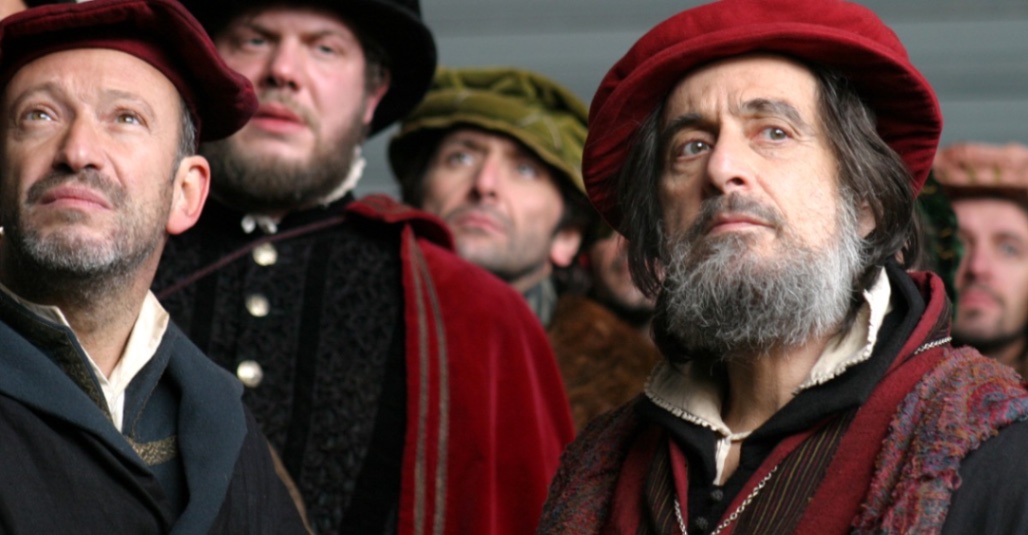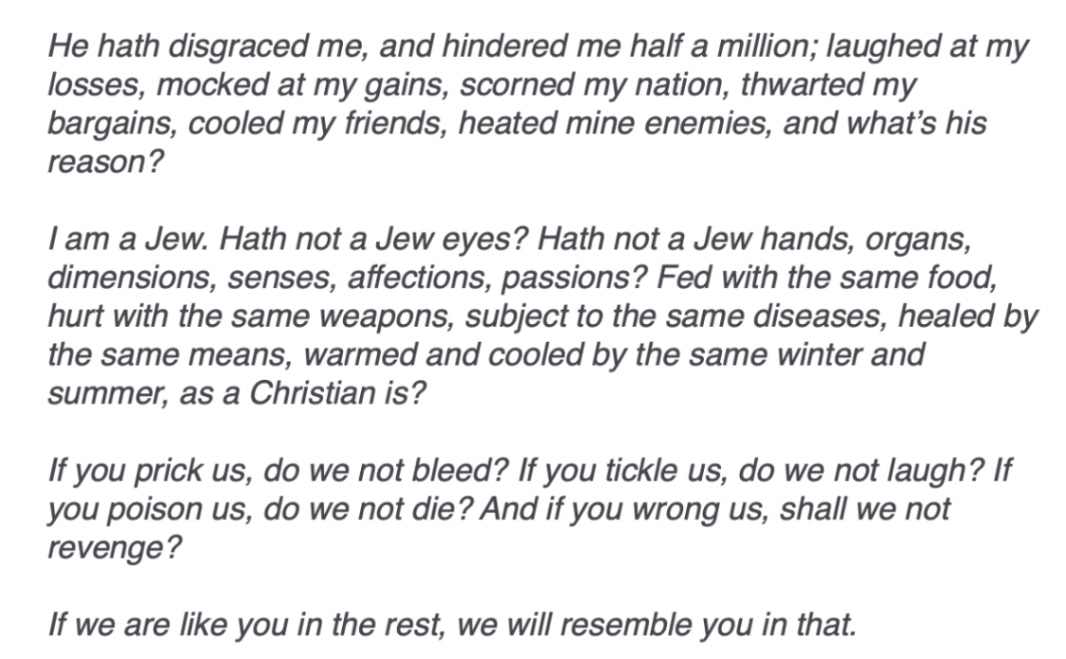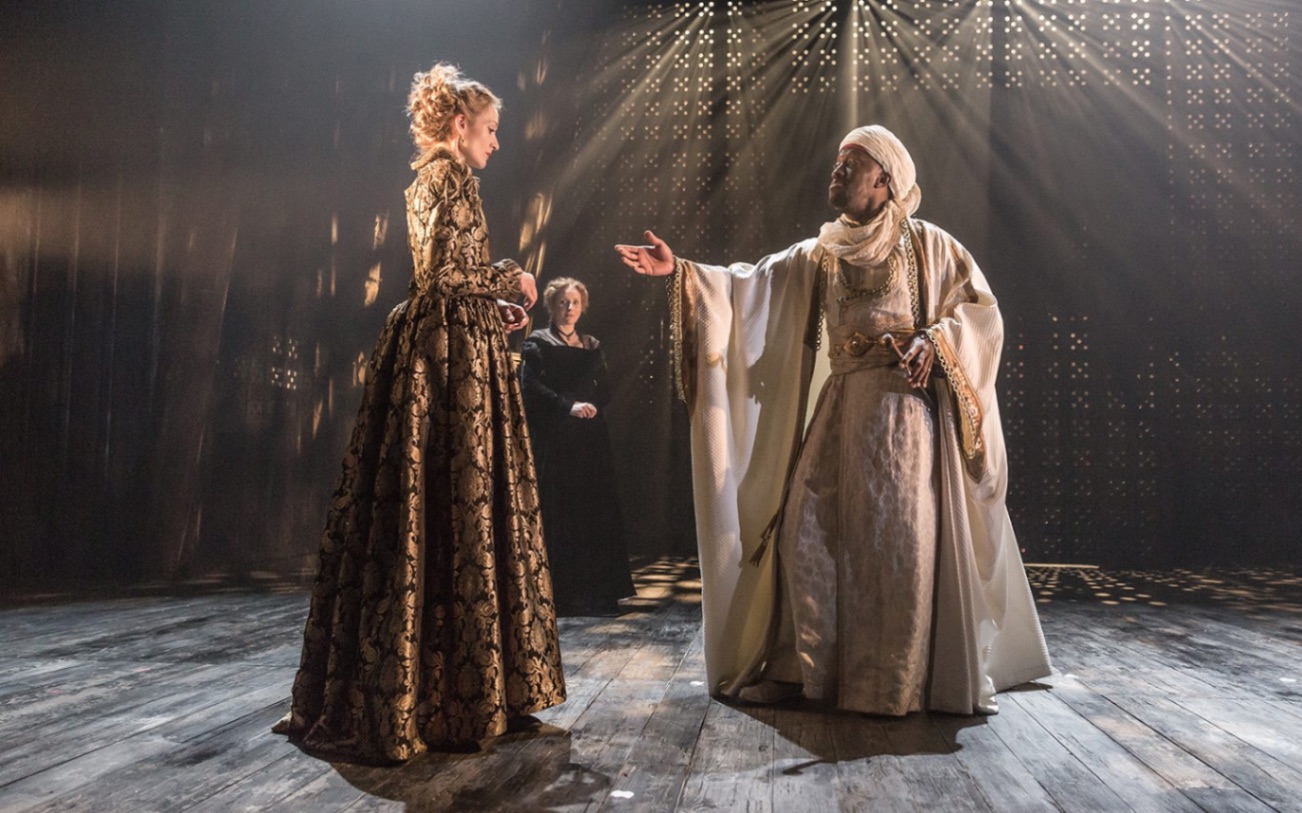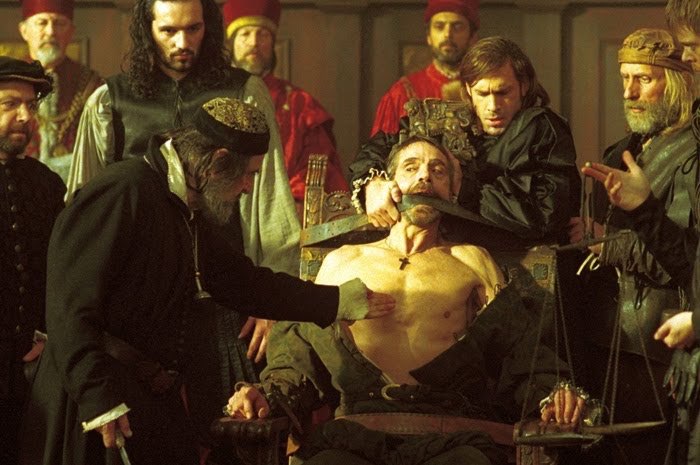10 things about bigotry I would discuss with Kanye.
Given the opportunity I would sit with him and discuss a broad and historical view on bigotry which I would draw from these 10 items found in "The Merchant of Venice," published in 1596 by William Shakespeare.

1. Overt bigotry can be veiled, hidden, and obfuscated. This can make it hard to call out.
The Merchant of Venice was written over 400 years ago and is among humanity's most reflected upon literary works.
Many argue that the play is clearly antisemitic and bigoted against gays and people of color.
Others say it is a tragic and compassionate rendering of Jewish people and gloss over other portrayals.
The fact that people still argue about the work's intent 400 years later shows how hard it is clearly call out bigotry.
This shows prejudice can be subtle and nuanced.
2. A person can have detestable attributes and also be worthy of sympathy.
Shylock, a Jewish merchant in the play, is one of the greatest and at the same time most complicated characters in literary canon.
He offers to lend Antonio money but only on the gruesome condition that Antonio's flesh be placed as collateral.
And when the loan is defaulted, Shylock demands the pound of flesh.
Is a horrible person drunk on revenge and spite? Or is he a person worthy of historical mistreatment of himself and his ethnic group.
Shylock's monologue provides arguments for both.

3. Hate and revenge can consume a person and lead to their downfall.
A main theme of The Merchant of Venice is the downfall Shylock brings upon himself by his obsession with inflicting pain and revenge.
In the end, all is lost, not even a Pyrhrric victory is realized.
His unbridled rage is directed at Antonio as an individual and by extension, aimed at the more global community of Venetian merchants.
His daughter, his fortune, the ring memorializing his dead wife, are all lost and he is forced to convert to Christianity.
His obsession with honor for himself and his community and retribution against his detractors makes him lose everything in a literal and metaphorical sense.
4. Is sunlight the best disinfectant?
None other than the Nazi party in Germany held The Merchant of Venice in high esteem, and they made edits to the play in order to dehumanize Shylock.
The foundation, framework, and structure of the play remained faithful to the original with slight changes to the window dressing.
Even when facts and circumstances are brought to light, external edits and internal justifications to a narrative can distort the truth.
5. It's easy to convince oneself they are on a mission for global justice.
Shylock assures himself that he is on a mission to protect his community by demanding a pound of flesh.
"Cursed be my tribe If I forgive him! " (Act I, Scene 3.)
But as the play shows to tragic effect, he not only does no favor to his ethnic group and community, from his stubbornness, he brings tremendous harm upon himself.
6. Bigotry is easy to overlook.
The Merchant of Venice seemingly focuses upon the Jewish-Christian divide. But we also learn that the wealthy heiress Portia harbors prejudices common in her time.
Among the first suitors to come to win Portia's hand in marriage is a Prince from Morocco and she says because of his skin color that even if he had the highest moral character possible, she doesn't want to marry him.
"If he have the condition of a saint and the complexion of a devil, I had rather he should shrive me than wive me." (Act I, Scene 2.)
7. Do we ignore our differences or celebrate them?
The Prince of Morocco, one of Portia's suitors, is like many other characters in the play both complex and conflicted.
He asks Portia to not disqualify him on account of his dark skin color but quickly notes that he would change his skin color to have capture her thoughts.
This makes us pause and wonder. To what extent is our ethnicity part and parcel of our character, a distinction to be celebrated? And under which circumstances would we discard it?

8. Allies aren't enough.
Some of the greatest actors of humanity have played the part of Shylock for centuries and surely some of them portrayed him with great sympathy.
Countless people have been left wondering who among Shylock and the other characters in the play is righteous and who is immoral.
Even the fondest portrayal of a person of engaged in questionable behavior can't absolve them of scrutiny.
9. Ethnicity and religion aren't necessarily ties that bind.
When Shylock's Jewish daughter elopes with her Christian lover, Antonio's friend Salanio notes:
There is more difference between thy flesh and hers than between jet and ivory, more between your bloods than there is between red wine and rhenish [white wine.]" (Act III, Scene 1.)
Shylock's daughter Jessica is not bound by her ethnicity, religion, nor duty to her father.
Whether she is a villain for eloping or a hero for following her heart, we have to reflect upon the fact that she discarded her seemingly unbreakable ties.
10. Ethnicity is complicated
From studying the Merchant of Venice we learn that while history doesn't always repeat itself it does rhyme.
This play, written over 400 years ago, shows us that there is often no clear path for a righteous person, and more so that some selfishness and tyranny is present in all of us.
As one tries to navigates through the labyrinth of complexity that is ethnicity, one might find they lose their community, their livelihood, their family, and their very identity.
And perhaps that would be the first point of agreement I would have in a discussion with Kanye.


No comments.